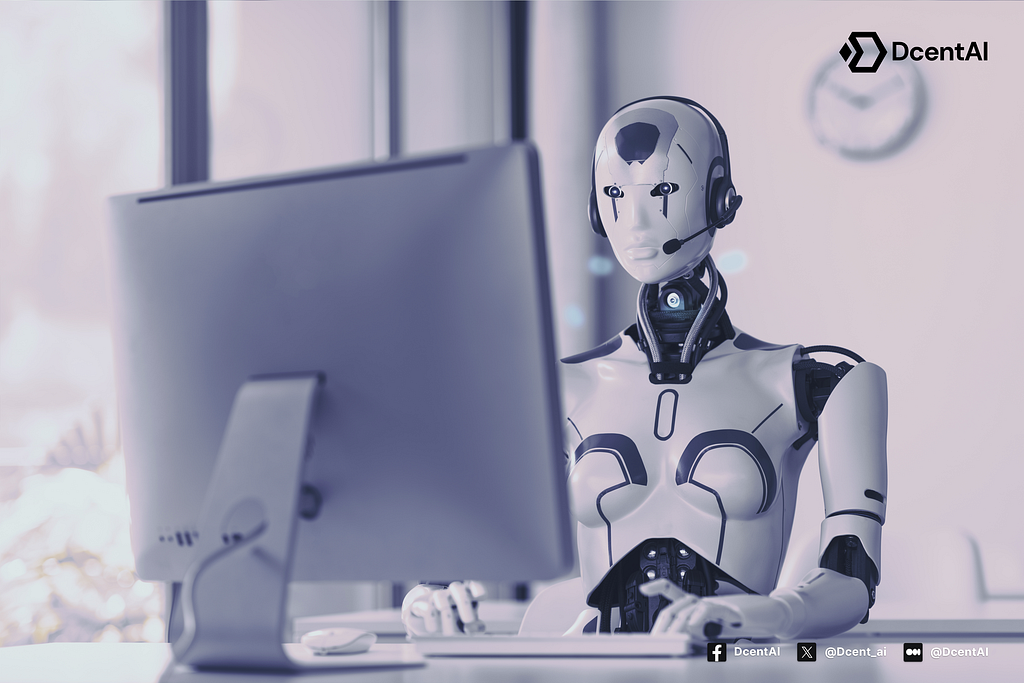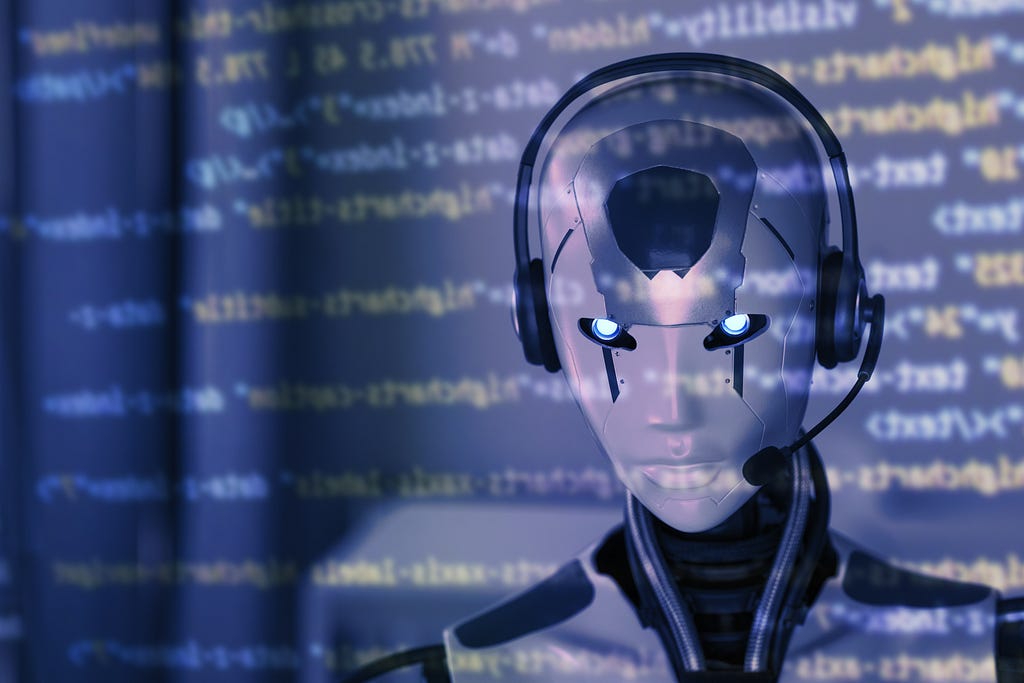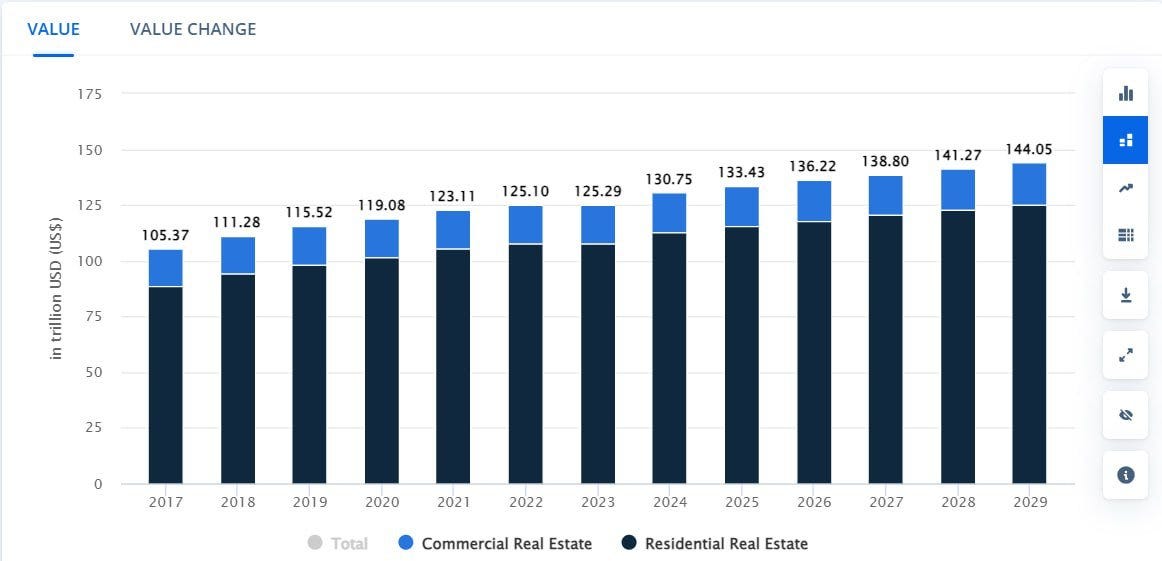
Virtual assistants have become essential to everyday life, helping customers with task management, data access, and communication effectiveness. Fueled by artificial intelligence( AI), these digital assistants give tailored experiences that increase effectiveness and customer satisfaction. However, as the need for more intelligent, responsive, and secure virtual assistants rises, standard AI models confront scalability, data security, and customization challenges.
Decentralized AI provides a disruptive solution by spreading data processing over various nodes, increasing the efficiency and security of digital assistants.This strategy empowers real-time data analysis, improved customization, and more user control over data security. Networks like DcentAI are at the forefront of this innovation, offering the framework for smoothly integrating decentralized AI into virtual assistants.
Become a pioneer of DcentAI community!
Benefits of Decentralized AI for Virtual Assistants
Here are some of the benefits of decentralized AI in virtual assistants:
Enhanced Personalization and Responsiveness
Decentralized AI permits virtual assistants to process and assess data closer to its source, resulting in more tailored and context-aware interactions. Unlike centralized frameworks, which depend on massive, remote servers, decentralized AI handles user information locally or over a dispersed network of nodes. This proximity lowers latency, permitting virtual assistants to respond more swiftly and directly to user orders and preferences. It resulted in a more responsive and individualized user experience, with the virtual assistant conforming to the user’s wants and preferences in real-time.
Improved Data Privacy and Security
A crucial benefit of decentralized AI is its capacity to enhance data security and security. Data isn’t concentrated in a single position but spread over various nodes in a decentralized structure. This arrangement decreases the chance of expansive data breaches, as vicious entities can not target a singular point of vulnerability. Consequently, this decentralized approach provides enhanced protection for user data, particularly for virtual assistants that frequently oversee sensitive data. Moreover, decentralized AI enables users to have greater authority over their data, empowering them to decide the storage and utilization of their data.
Scalability and Flexibility
As the demand for virtual assistants grows, scalability becomes a critical concern. Decentralized AI offers a solution by allowing the network to expand organically by adding new nodes. Each node can independently process data, enabling the virtual assistant system to scale efficiently without massive centralized infrastructure investments. This flexibility also means that virtual assistants can be easily integrated into various devices and platforms, from smartphones and smart speakers to enterprise systems, without compromising performance.
Real-Time Data Processing and Response
Decentralized AI improves virtual assistants by permitting real-time information handling and response, reducing latency and increasing decision-making speed. This innovation empowers virtual assistants to perform energetically, quickly adjust to changing customer demands, and allow a more consistent user experience. Decentralized AI also optimizes resource utilization, ensuring efficient performance even during high demand, and offers scalability for handling a growing range of real-time applications. DcentAI supports these advancements by providing the infrastructure for fast, reliable, and contextually accurate virtual assistant responses.
Cost-Effective Operations
Centralized frameworks require significant server infrastructure and maintenance expenditures, while decentralized frameworks utilize available assets. For organizations and developers, this cost-effectiveness can result in more inexpensive and accessible virtual assistant solutions, permitting more acceptance and development in the field.
Networks like DcentAI are capitalizing on these advantages, offering the tools and framework required to integrate decentralized AI into virtual assistants. DcentAI leverages the power of decentralization to create virtual assistants that are smarter, more secure, and versatile to the different demands of consumers and enterprises.
Challenges in Implementing Decentralized AI in Virtual Assistants

Implementing decentralized AI in virtual assistants presents several issues or challenges:
Data Consistency and Synchronization
One of the biggest challenges is guaranteeing that all nodes in a decentralized network have precise and up-to-date data. In a decentralized AI framework, data is processed over various nodes, which might cause synchronization concerns. Virtual assistants may provide wrong or obsolete answers if data between nodes conflicts, lessening client confidence and efficacy.
DcentAI uses advanced synchronization techniques and real-time algorithms to ensure data remains consistent across all nodes. This approach prevents data lag and redundancy, ensuring virtual assistants provide accurate and timely responses.
Scalability and Performance
As virtual assistants handle increasing users and tasks, the decentralized AI system must scale efficiently to meet growing demands. Managing a more extensive, decentralized network of nodes while maintaining good performance is challenging. If not accurately handled, this might result in poor response times, latency, or framework bottlenecks, decreasing the user experience.
DcentAI’s decentralized infrastructure is built to develop effectively, allowing virtual assistants to manage larger workloads without sacrificing performance. The platform optimizes resource allocation across the network, ensuring responsive service even during high demand.
Security and Privacy
Decentralized systems can be more challenging to ensure than centralized frameworks. Each node in a decentralized AI framework must be independently secured to avoid illegal access, information breaches, or manipulation. In the case of virtual assistants, where sensitive user data is regularly taken care of, ensuring the security and protection of each node is crucial. The system’s decentralized nature can also complicate enforcing uniform security standards across all nodes.
DcentAI enhances security by implementing advanced encryption and robust access controls across its network. Each node is secured with top-tier measures, and the decentralized model inherently reduces the risk of widespread data breaches.
Integration with Existing Systems
Many virtual assistants are based on centralized AI models; thus, moving to a decentralized framework requires updating or replacing these legacy frameworks. This move may be resource-intensive and technically complex since it requires significant adjustments to the data engineering, retraining AI models, and guaranteeing compatibility with the current framework. The integration process can disrupt service and requires careful planning and execution.
DcentAI offers flexible and adaptable solutions that simplify integrating decentralized AI into existing virtual assistant frameworks. The platform supports a wide range of data formats and provides tools that facilitate migration, reducing the time, cost, and disruption associated with integration.
User Adoption and Trust
Users may be unfamiliar with decentralized AI and skeptical of its benefits. To ensure widespread adoption, it is essential to ensure that users trust the new system and are comfortable using it. This challenge involves technical implementation, user education, and interface design to make the transition to decentralized AI seamless and intuitive.
DcentAI emphasizes user education and support, offering user-friendly interfaces and tools that make the decentralized elements easy to navigate. It can also provide training resources to help users and administrators adapt to the new system, fostering greater trust and engagement.
Real-world Examples of decentralized AI in Virtual Assistants

Here are some of the real-world examples of decentralized AI in virtual assistants:
SingularityNET’s Sophia
Sophia, the renowned humanoid robot made by Hanson Robotics, is one of the best-known examples of decentralized AI. Sophia, fueled by SingularityNET, a blockchain-based AI platform, uses decentralized AI to refine her conversational capacities and decision-making processes. SingularityNET’s decentralized structure empowers Sophia to access and integrate AI services from distinctive providers, performing in further diversified and nuanced interactions. This methodology enhances transparency and minimizes Sophia’s reliance on a single AI source, making the framework more resilient and versatile.
Fetch.AI’s Autonomous Agents
Fetch.AI is a decentralized platform that allows the building of autonomous software agents to act as virtual assistants. These agents are intended to do data retrieval, predictive modeling, and real-time decision-making without requiring a centralized framework. In the context of virtual assistants, Fetch.AI’s decentralized approach empowers more scalable and versatile frameworks that can operate in changing situations. These agents may communicate and transact with one another in a decentralized network, increasing efficiency and decision-making in real-time applications.
Ocean Protocol’s Data Marketplaces
Ocean Protocol is a decentralized data-sharing protocol that empowers AI models, such as virtual assistants, to securely and effectively access and utilize assorted datasets. Virtual assistants in a decentralized AI environment can utilize data given on Ocean Protocol markets to improve their performance. This technique enhances the quality of replies offered by virtual assistants while guaranteeing that data remains secure and controlled by data owners. Ocean Protocol’s decentralized structure empowers virtual assistants to access various data sources, resulting in more tailored and precise interactions.
Alethea AI’s Decentralized Content Moderation
Alethea AI uses decentralized AI to create virtual assistants that can interact with users more human-likely. These virtual assistants are built on a decentralized platform where content moderation and decision-making processes are distributed across a network of nodes. This decentralized approach ensures that the virtual assistants’ behavior aligns with community guidelines while reducing the risk of bias or censorship from a centralized authority. The decentralized moderation system also allows for more transparent and accountable interactions, enhancing user trust.
Numerai’s Decentralized Data Science
Numerai is a decentralized data science competition platform where data researchers worldwide participate in advancing artificial intelligence models. While Numerai is not only a virtual assistant platform, its methodology illustrates how decentralized AI may be applied to complicated problem-solving activities. The decentralized paradigm empowers participation and imagination on a scale that centralized frameworks cannot match. Virtual assistants can utilize similar decentralized systems to continually increase AI learning and flexibility by harnessing collective insights from numerous sources.
In Summary
Decentralized AI will revolutionize the development and functionality of virtual assistants by refining security, scalability, and personalization. Unlike traditional centralized systems, decentralized AI distributes processing and data across multiple nodes, thereby reducing the liability of single points of failure and adding the overall resilience of virtual assistants.
This strategy empowers real-time data handling and more flexible answers, making virtual assistants more effective and sensitive to user demands.
Platforms that utilize decentralized AI can provide more secure, reliable, and effective virtual assistants capable of giving tailored experiences on a global scale.As this innovation advances, it guarantees the modification of how customers engage with AI, resulting in more competent, dependable, and user-centric virtual assistants.
Become a pioneer of DcentAI community!
To learn more about DcentAI, visit our Facebook and X accounts.
Decentralized AI for Enhancing Virtual Assistants was originally published in The Capital on Medium, where people are continuing the conversation by highlighting and responding to this story.

 17 hours ago
28
17 hours ago
28




 English (US) ·
English (US) ·